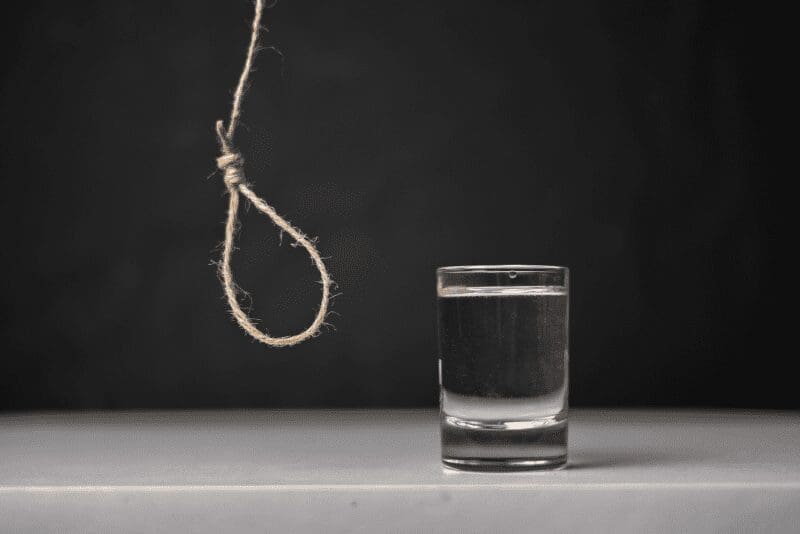Alcohol is undoubtedly a central component of American culture. Whether you are the kind of person who enjoys a fine wine, a fancy cocktail, or a can of beer, there are plenty of opportunities to partake of alcohol. In fact, given the high level of advertising for alcoholic beverages we are all exposed to and the fact that some form of alcohol is available in an extremely wide range of settings, it can almost seem as though drinking of one form or another is a requirement for having a good time.
Drinking is Just Good Fun, Right?
Even with all the messaging around drinking responsibly that appears in alcohol advertising, those ads are designed to form an association in our minds between fun, family, friends, and drinking. And so it is easy to set aside concerns about drinking. It’s just good fun, right?
For many people, the answer to that question is yes. But for others, good fun can become a bad problem. Sometimes, however, that transition is gradual—so gradual that the person developing the problem may be slow to recognize it.
Let’s take a look at some of the signs that your casual drinking is not so casual anymore.
Sign One: Increasing Tolerance
A casual drinker who drinks more than usual will feel the effects. They’ll feel more drunk—and potentially more hungover—as a result of downing the extra drinks. But over time, a person’s tolerance for alcohol increases, meaning that they can drink more and more before they start feeling the effects. At first blush, that might seem like a good thing. But if you drink as a way to relax, needing more and more alcohol to arrive at the desired level of calm is increasingly problematic.
Sign Two: Finding Extra Reasons to Imbibe
It is pretty common to hear someone who has had a tough day say something like, “I need a drink.” Maybe you have said it yourself. But if you find yourself frequently thinking that you need a drink—to deal with a hard day at work, to recover from a difficult conversation, to wind down so that you can sleep, or for a wide range of other reasons—the odds are good that a problem is developing. If drinking is your go-to solution for whatever problem or challenge arises, it is probably time to make a change.
Sign Three: “It’s Five O’clock Somewhere” Syndrome (and Keeping Secrets)
If you have started drinking at what might be considered unusual—or even inappropriate—times, you have likely moved past anything that could be called “casual” drinking. The same is true if you are drinking on the sly. Drinking in secret is a telltale sign that things have progressed to problematic levels when it comes to your relationship with alcohol.
Sign Four: An Increased Risk of Risk-Taking
One of the reasons people enjoy drinking is that alcohol lowers our inhibitions, which can make it feel easier to let go and have a good time. But it is one thing if lowered inhibitions make it easier for you to talk with an attractive stranger or to convince yourself to get up and dance. It is quite another thing if lowered inhibitions enable risky behaviors like drunk driving, mixing alcohol with other drugs (whether those drugs are legal medications or illegal substances), getting into physical altercations, or engaging in unwise sexual behavior. If your tolerance for risk is rising, it is likely that the truthfulness of any claim of “casual” drinking is falling.
Sign Five: Letting Yourself—and Your Surroundings—Go
As a person transitions from a casual drinker to a person with an alcohol issue, it is often the case that they will let aspects of their personal hygiene start to slip. They might also start to neglect their living spaces, allowing garbage to collect or dishes to go undone or piles to collapse into chaos. When these things start to happen because all of a person’s focus has shifted to their need to keep drinking, all arguments that their drinking is still casual are illusionary.
Sign Six: The Black and White Problem of Blackouts
If you are increasingly unable to remember significant periods of time surrounding your drinking or if you find yourself waking up in unusual surroundings unsure of how you got there, you are experiencing blackouts. These blackouts are a significant sign of alcoholism and should not be taken lightly. While it is possible that a blackout can be an isolated occurrence resulting from one night of overindulging, recurring blackouts are an unmistakable sign of trouble.
All Signs Point to French Creek Recovery Center
If alcohol has become a problem in your life, the time to get help is right away. At French Creek Recovery Center, we offer medically supervised detoxification and a rehabilitation program designed to give you skills, resources, and confidence for your recovery journey—including a commitment to a continuum of care. Regaining and maintaining sobriety is essential to reclaiming your life and to accomplishing your goals. French Creek Recovery Center provides personalized, evidence-based, compassionate care in a judgment-free environment.
If your relationship with alcohol has gone from casual to problematic, the team at French Creek Recovery Center is ready and able to help.

